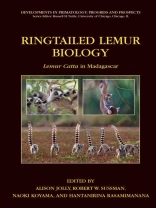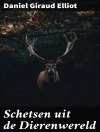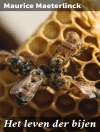This book is a truly international collaboration, with editors based on four con- nents and first authors from Canada, France, Japan, Madagascar, the United Kingdom, and the United States. Clearly, there is something attractive about studying Lemur catta, the ringtailed lemur. Perhaps it is the lemurs themselves! Why study ringtailed lemurs? Because lemurs are a separate radiation of p- mates from the monkeys, apes, and humans. Because ringtails live in the largest social groups of any known lemur and therefore offer the closest comparison with other social primates, including ourselves. And also because ringtails have become the flagship species of Madagascar. Some 70 species or subspecies of lemurs inhabit Madagascar. Each kind has its own fascinating story, but ringtails are the ones that everyone thinks they know. That black-and-white tail adorns tourist brochures and school notebooks and banknotes. All the same, after 40 years of field study, we don’t know nearly enough. In this book, we make a first estimate on how many might be alive today, but we do not know how many ri- tailed lemurs and how many southern forests will survive. This book explores part of what we do know. Its four sections are (I) Distribution: Ringtailed Lemurs in Madagascar, (II) Ringtails and Their Forests: Feeding and Ranging Behavior, (III) Social Behavior Within and Between Troops, and finally (IV) Health and Disease. Of course, all these issues are int- related.
表中的内容
Distribution: Ringtailed Lemurs in Madagascar.- The Distribution and Biogeography of the Ringtailed Lemur (Lemur catta) in Madagascar.- A Preliminary Estimate of Lemur catta Population Density Using Satellite Imagery.- Berenty Reserve: A Research Site in Southern Madagascar.- Beza Mahafaly Special Reserve: A Research Site in Southwestern Madagascar.- Ringtails and Their Forests: Feeding and Ranging.- Plant Species Fed on by Lemur catta in Gallery Forests of the Southern Domain of Madagascar.- Tamarind Recruitment and Long-Term Stability in the Gallery Forest at Berenty, Madagascar.- Home Ranges of Ringtailed Lemur Troops.- The Influence of Tamarind Tree Quality and Quantity on Lemur catta Behavior.- Feeding Competition Between Introduced Eulemur fulvus and Native Lemur catta During the Birth Season at Berenty Reserve, Southern Madagascar.- Tradition and Novelty: Lemur catta Feeding Strategy on Introduced Tree Species at Berenty Reserve.- Diet Quality and Taste Perception of Plant Secondary Metabolites by Lemur catta.- Social Behavior within and Between Troops.- Territory as Bet-hedging: Lemur catta in a Rich Forest and an Erratic Climate.- Resource Defense in Lemur catta: The Importance of Group Size.- Social Changes in a Wild Population of Ringtailed Lemurs (Lemur catta) at Berenty, Madagascar.- Obsession with Agonistic Power.- Male and Female Ringtailed Lemurs’ Energetic Strategy Does Not Explain Female Dominance.- Male Sociality and Integration During the Dispersal Process in Lemur catta: A Case Study.- Health and Disease.- Patterns of Health, Disease, and Behavior Among Wild Ringtailed Lemurs, Lemur catta: Effects of Habitat and Sex.- Bald Lemur Syndrome and the Miracle Tree: Alopecia Associated with Leucaena leucocephala at Berenty Reserve, Madagascar.- Temporal Change in Tooth Size Among Ringtailed Lemurs (Lemur catta) at the Beza Mahafaly Special Reserve, Madagascar: Effects of an Environmental Fluctuation.
关于作者
Alison Jolly was the first scientist to study ringtailed lemurs in the wild, beginning in 1963. She continues her research on their troops in Berenty Reserve, working with many colleagues and students. Robert Sussman began the survey of ringtails throughout Wesern Madagascar in 1970, and in 1979 co-founded Beza Mahafaly Reserve of the School of Agronomy, University of Antananarivo. He has also continued research with generations of western and Malagasy students since then. Naoki Koyama heads the Kyoto University study group on ringtail behavior at Berenty, 1989 to the present. Hantanirina Rasamimanana of the École Normale Supérieur, University of Antananarivo, first worked at Berenty in 1983, and continues research there with the ENS students. In short, the four editors head all the major ringtail research groups, and have united with their colleagues and students to write this volume.












